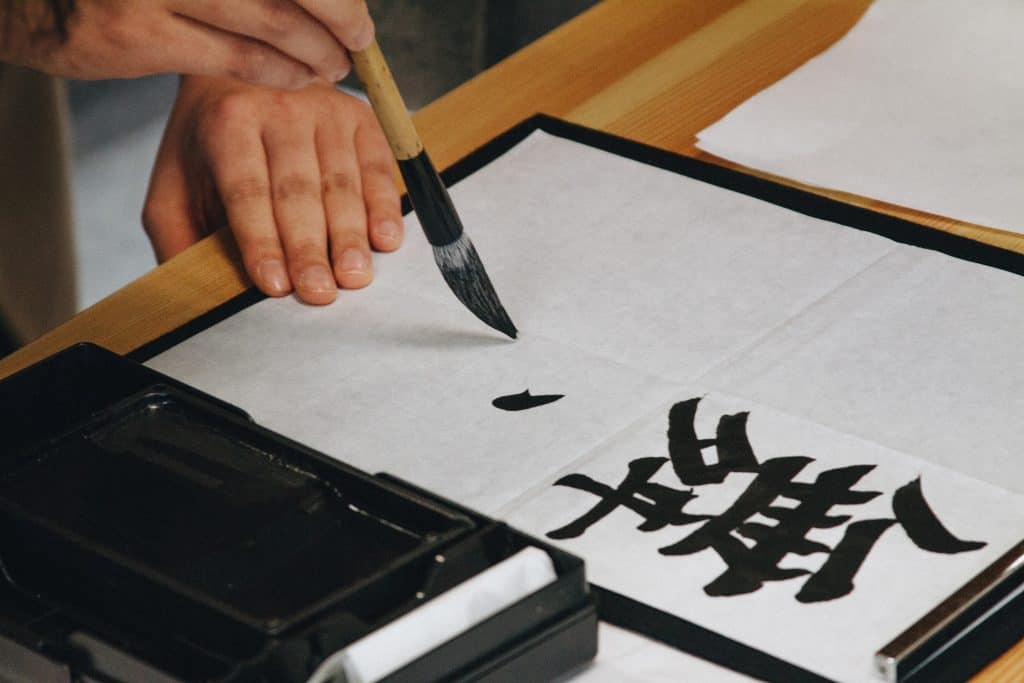Before coming on JET, most of us are young, bright-eyed and bit naive about our next adventure. If you’d like more information on the JET Program, check out the JET section of my blog. I lived in Mexico for 3 months with my family over summer vacation as a child, but I had no idea what Asia was about. Now that I am a seasoned verbena of living abroad (3 years in Japan and 4 years in Asia) I can confidently give you advice on how to really thrive living in Japan. I’ve screwed up spectacular many, many times and I can offer you advice so that you don’t make the same dumb mistakes I did.
I’d also like to point out, no matter how much you prepare, there’ll still be some things that will come as a shock to you. I’m making this guide because I don’t want you to just survive in Japan. I want you to thrive. Hence thrive + survival = thrival. Thus, the JET Thrival Guide shall be born.
Keep in mind every situation is different, but I’m gonna do my best to help you succeed and not just survive! Here’s a list of things you should know before coming on JET or moving to Japan.


Blog Posts You Might Like
- Advice For Moving to Japan – I wish someone would have told me half these things before I moved to Japan. In this guide, you’ll find what to pack, how to deal with culture shock and how much money to bring.
- How To Survive Winter in Japan – I can 100% guarantee you that winter in Japan is nothing like anything you’ve experienced in your home country. Check out this guide on how to make yourself more comfortable.
- How To Survive Summer in Japan – Once you experience a Japanese summer, I can guarantee you will never forget it. Here are some helpful tips to make the sweltering heat your bitch.
- How To Prepare for Typhoons in Japan – The first time you encounter a typhoon, you might feel like the world is ending. But never fear, if you use this guide, it’ll be like another day in paradise. Here are some tips on how to keep yourself safe.
- How Not To Be a Complete Dickhead in Japan – This guide will teach you a thing or two on Japanese manners, being an outstanding citizen, and most of all, not being an asshole.
- How To Deal With Culture Shock – Culture shock is a HUGE bitch, let me tell you. It can really make or break your experience in a foreign country. Check out these tips on how to deal with it and make the best of your situation.

Before Coming To Japan
1. Study Japanese
Know the basic kanji like the days of the week, water, food, and your school. Hiragana and katakana are super important as well. The more you know, the easier your transition will be. If you don’t have time to study, make time. It will only make your life easier. I promise. To make your life so much easier when you move to Japan, you can learn Japanese for FREE here.
2. Know Basic Greetings
My self introduction was, “Hello. My name is Gina, Nice to meet you.” It worked for my first week, but you need more than that. Change up your jikoshoukai so you’re not annoying yourself or others. It’s a fun way to get to know yourself in Japanese. Learn how to say, “Where can I find (insert object, place, person here)” or directions. Knowing how to find the toilet and order beer is also an important must know. 😉
3. Get Rid of Your Expectations
Having expectations will only ruin your time in Japan. If you’ve been in Japan before, you know what to expect but if you haven’t, don’t come with preconceived notions. It’ll knock you down if and when you start going through culture shock. Clear your brain, be aware of the culture, and strap in for the ride!
4. Ask About Your School
Your predecessor may not always give you all the information so it’s important to know your students. If you are at a low academic school, your kids may or may not be well behaved. For example, I have the sweet kids of the countryside and my friend has the school across town where they’re known to throw desks and chairs. Have some idea of what your school and kids are like.
5. Ask Many Questions
Ask your predecessor what kind of clothes you need to bring and what not to bother with. Ask them about immediate costs, what your teachers are like, and what the students are capable of. Ask your predecessor to leave you a map or pictures of local haunts, delicious restaurants or fun places to go.
6. Take a TEFL Course
If you can afford this course, take it! Even if you have a background in education or TESOL (Teaching English to Speakers of Other Languages) should definitely look into it. It’ll teach you some skills you need to make your classroom run smoothly. You’ll learn how to bridge the cultural gaps and effectively use English as a means of communication.
In addition, JET also offers a $300 reimbursement for you to get tour TEFL. Jump on it because the more certifications you have, the more attractive you look in the job market! If you’d like to get your TEFL, you can go through ITTT and get a 15% discount from your 120 hour standard course!
7. Bring Home Comforts
If you’re not tiny like a Japanese person, bring your own stuff! If you have hair other than straight and black, bring your own hair products. Bring your own foundation because Japan typically doesn’t carry darker skin colors. Japan isn’t very accommodating to the “other” unless you’re in a city or heavily foreigner populated area. Bring your own dress clothes and pants. Tops are okay if you don’t have large muscles either. If you like Sour Patch kids, bring that too. They don’t exist in Japan. Stock up on shoes if you’re above the standard Japanese size.
8. Don’t Stress About Omiyage
Honestly, cookies or American snacks will work fine. I got key chains, pencils, and cool things from the dollar store. I bought a glass mold of the Chicago skyline for my principal and vice principal and it only cost $4.00. They loved it and everyone wins. It doesn’t have to be expensive. It’s the thought that counts!
9. Power of Attorney
Give this power to a trusted loved one. It helps when they’re taking care of things on your behalf like taxes, finances, paperwork, etc. Trust me, it will save you a lot of stress in the end because no one can stop your parents or trusted person from doing things on your behalf.


Getting to Japan
1. Get a Smart Phone
You may not want to fork out the cash, but a smart phone has been a lifesaver for me many, many times. It has GPS, a translator, and other useful apps for making the Japan transition easier. With easy access to the internet, you can have information and communication at your fingertips. Or you can buy a cheap and unlocked used iPhone or Samsung on Amazon for cheap.
2. Download LINE
LINE can go onto your cellphone number in Japan and you can use it on an iPad, laptop, or tablet. This app works through the internet and you can talk all night on the phone with your loved ones back home for free. With a plethora of cute stickers to choose from, and wallpaper you can change, LINE is fun. Most people use LINE in Japan to communicate with each other because it costs money to send a text directly to a phone unless you have iMessage.
3. Know Your Neighborhood
You’ll figure out the other stuff later but know where the nearest convenience store, grocery store, post office, and train station or bus stop is. Don’t be afraid to go outside and explore. It gets less scary as time goes by. Sometimes you’ll meet cool people walking around.
4. Find a Japanese Hobby
You’re in Japan so why not? Why not take up calligraphy, archery, tea ceremony, flower arranging or the shamisen? Japan’s culture is so unique, it will be a cool skill to bring back with you. Imagine impressing your friends and family by shooting an arrow into a target and not their butt! If you like sports, ask around your school if there’s an adult sports club you can join.
5. Make an Effort to be Included
Most Japanese don’t know how to approach foreigners or what to say. If you’re not automatically included, don’t take offense. They may or may not like you, but most of the time, the don’t know what to do with you. It may seem rude to invite yourself, but the more, the merrier, right? Be open to making new friends and trying new things. You’d be surprised with who you meet!
6. Get Out There!!!
Sometimes it’s scary as hell, but you probably won’t be beating yourself up later for trying something new instead of never trying at all. You’re on your own so advocate for yourself! Don’t hole yourself up in your apartment waiting for the world to go back to the way you know it. It won’t. No one is going to hold your hand anymore. Be your own hero.
7. Cash is KING
On National Holidays like Golden Week, the ATM will close and you’ll be stuck without money. Sometimes it’s hard to get a credit card in Japan because of the paperwork. I, myself, didn’t have this problem and my Japanese coworker helped me get one. You can always get a prepaid debit card and some places will take foreign cards. Japan still very much has a “gimmie the money” system. If you don’t have it, then you shouldn’t get it. While this can be inconvenient, be aware of this.


At Your Japanese Workplace
1. Learn Your School
I’m going to go out on a limb here and assume you’ve moved to Japan as an English teacher. You’ll have time before summer vacation ends. Usually, students aren’t in class which gives you loads of free time. Figure out where you will be teaching class, where the language labs are, and how to use the computers. Find out where the tea ceremony room, art classroom, and gym are. You can always join a pick up game or art class. Walk around the school and find the bento shops or local grocery stores so you’re not scrambling with the rest of the kids come lunch time.
2. Be Slow To Anger
Japanese classrooms work differently from American classrooms. In America, most classes know to keep silent when the teacher is talking. We know if the teacher talks, you shut your mouth. In Japan, there are usually very chatty students in some classes. Don’t get angry. What I usually do is I stop talking and the students police themselves. Not all schools will be good like this, but I find this to be an affective method. Or you can shush them or give them a friendly reminder. Whatever you do, keep your calm and your cool.
3. Know Classroom Culture
In Japan, students are expected to rise and bow to their teacher. This fosters respect between the teacher and students. When I first got here, I didn’t know that and it caused some tension because the students took advantage of my ignorance of Japanese culture. Now, I make sure they do their “Go rei” in every class. Take their attendance and learn their names. If you show you want to know them, they’ll respect you much more.
4. Talk to the Teachers
Even saying hello will help break the ice. Hang out with them. Smiles and interest usually break down the polite barriers of the Japanese. By striking up a conversation, you can go miles! You may be surprised about that one teacher with a sour face is actually really kind and likes to garden! Or that one cute teacher who looks stuck up is actually really shy and wants to talk to you but lacks the confidence to do so.
5. Find Out What’s Going On!
If there’s a sport you like, join the kids! They usually have practice over summer break so by joining their activities, they get to know you before you get into the classroom. Playing sports, despite a language barrier is a great way to connect.
6. Lesson Plan
Ask your predecessor or successor what lessons they have done. You don’t want to repeat a lesson! Gage the level of your students by selecting a few students to talk to after class. Find out what interests your students. I’ve been able to bond with mine over music and sports teams. (For some reason they really love baseball.) The more you know, the better. I also recommend waygook.org (mostly for teachers in Korea, but great lessons all around). There are ready made lesson plans and it’ll save you a lot of planning.
7. Extra Change of Clothes
Sometimes, even when you’ve been in Japan awhile, you make that rookie mistake of forgetting to dress up during the opening or closing ceremony. Leave an extra change in case you get rained on, sweat through, or dirty yourself. Leave a blazer for the oops moment and extra clothes for everything else.
Note: Don’t expect teachers to tell you everything. You have to ask. What you may think is new and strange and you should know, they may not think so because it’s so engrained into daily culture. Ask questions.


I hope this thrival guide will help you succeed when you get into Japan. Japan can be a great and amazing country if you let it! This guide is specifically geared towards JETs or people coming to work as English teachers in Japan. For those of you coming in, did you find this Thrival Guide helpful? For current JETs, is there anything you would add to the list?


This post contains affiliate links which means at no additional cost to you, I make a small commission to help keep Gina Bear’s Blog running. Thanks for your support!

Japan Travel Guide E-Book
Planning on traveling to Japan?
Enter your name and email address and click the button below to receive your Easy Japan Travel Guide so you can travel like a local!







What a great guide Gina!! 🙂
Oh my goodness! Thanks for commenting! I’ve been following your blog for awhile! Love your work!
I’m not a JET but am teaching English in Japan and one thing I would say is helpful is watching Japanese TV…I find my students love it when I know some of their favorite shows/characters/trending stuff on TV. It’s one way to have something in common to talk about^^
I’m sending this blog btw to one of my friends who is starting JET this year!
Loved reading your post! Going to Japan is one of my dreams for some of the reasons you mentioned and more.
Just one question, maybe I’m ignorant here but what is JET?
Thanks,
Cristina
http://www.hiddengemstheblog.com